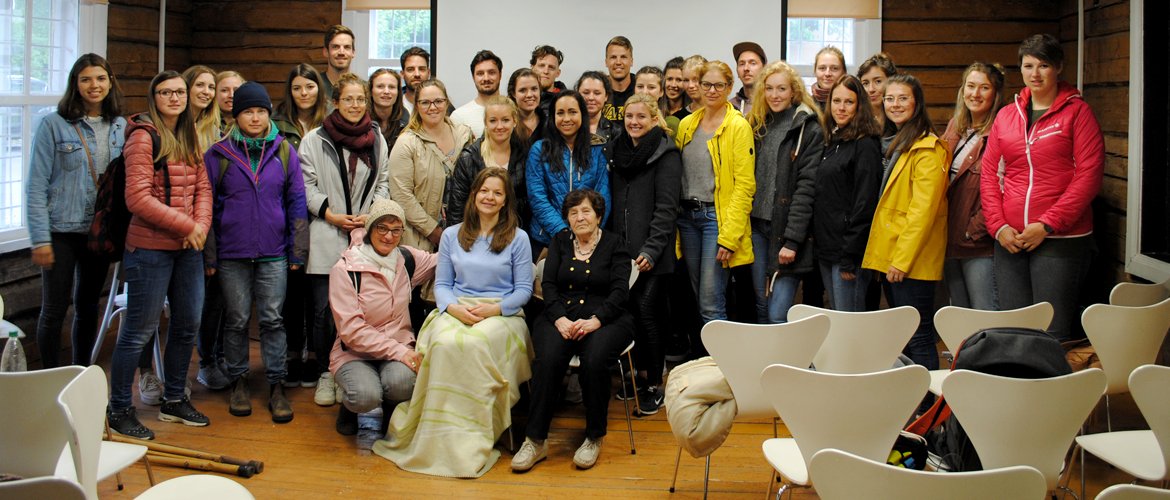
International Week: Visiting the sports and cultural facilities in Minsk
Within the course of International Week, a group of students of the master study program Sports, Culture & Event Management visited the Belorussian city of Minsk in May of 2019. Cultural impressions and the European Games sports event were central topics.
As the host city of the second European Games, Minsk was the ideal location for gathering profound insights into planning this major sports event. The European Games are an athletic competition among European countries similar to the Olympics as European nations compete in various disciplines. In addition to the sports-oriented highlight, visits to cultural institutions were also on the agenda during which study-relevant content was consolidated.
European Games
The Belorussian capital, a model project of urban-planning for former socialistic utopias with numerous parks, broad streets and a good sports infrastructure, is the host city for the second European Games in June. At a meeting in the Austrian embassy, the management team talked about the organizational challenges for the major event for which 180,000 tickets will be made available for sale. Expectations for a touristic upturn in Belarus as well as progress towards greater European integration are high. The team explained that only a third of the work expenditure was directly associated with the athletic part of the event. Two thirds of the efforts involve financing, advertisement and cultural framework programs as the goal of the planners is to not adversely affect the daily lives of the 2 million people in this metropolis. Austrian athletes also take part in the competition, which is why Austria will be given the opportunity for a one-day presentation within the framework program. Students were able to integrate their expertise in a discussion with Ambassador Dr. Aloisa Wörgetter with respect to the optimal design of such a presentation.
Civic projects
In addition to the European Games, Minks also offers numerous cultural institutions of which some were visited by the group of students. The Ў Gallery has established itself as an internationally recognized exhibition for contemporary Belorussian and international art. The gallery is located in the heart of the former industry quarter, which the creative scene redesigned with co-working spaces, graffiti and coffee houses according to their requirements. An employee of the Ў Gallery talked candidly about the difficult position of contemporary art in the Belorussian presidential republic with respect to the audience and the state. There is no public funding, which is why cooperations with institutions like the Goethe-Institut are extremely important. With assistance from the Goethe-Institut, the traveling exhibition by Amy Winehouse “A family portrait” will be hosted in the gallery as the manager of the Goethe-Institut Minsk explained at another meeting. The Jewish ancestors of Winehouse were from Belarus as the exhibition was designed by the singer’s brother and the Jewish Museum London. As a culturally active institution, the Goethe-Institut is committed to social-political topics such as, in this case, raising awareness for Jewish history and the present situation of Jews. The Jewish population of Belarus was nearly eradicated during the National Socialist occupation from 1941-1944 as hundreds of thousands of Jews from Germany and Austria were also murdered in large-scale death camps.
History Workshop as a transnational project of the commemorative culture
A deeply moving meeting with a contemporary witness occurred during a visit to the History Workshop. The witness explained how she came to the Minsk Ghetto at the age of six and only survived due to the help of a “righteous person among the peoples”. A farmer smuggled her out of the ghetto and kept her until the end of the occupation. The History Workshop Minsk, accommodated in a historic building within the former Minsk Ghetto, cooperates with the International Bildungs- und Begegnungswerk Dortmund and aims “to create a good future by remembering the past”, according to the institute’s self-description.
After the official end of this impressive week, the students traveled to the Austrian memorial for murdered Jews in Maly Trostinec, located twelve kilometers south-east of Minsk, at their own initiative. “The commemorative culture is a central and current topic in cultural management as expressed by the in-depth encounter in the History Workshop,” said Cultural Management Professor Dr. Verena Teissl. Director of Studies Asc. Prof. (FH) Mag. Monika Kohlhofer emphasized the “inestimable value of International Week. The visits to sports and cultural institutions make theoretical approaches tangible and provide intercultural education.”